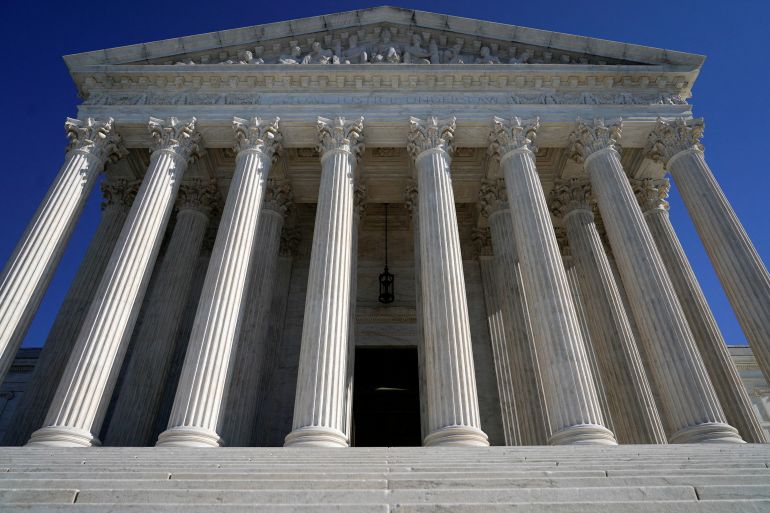US top court rules Puerto Rico not entitled to welfare programme
Supreme Court justices say denying benefits to residents of Puerto Rico does not violate their constitutional rights.

The United States Supreme Court has ruled that people living in the US territory of Puerto Rico are not entitled to the same federal welfare benefits provided to citizens living in the country’s 50 states.
In an eight-to-one decision on Thursday, the top court ruled against a Puerto Rico resident who argued that not receiving benefits allocated to low-income elderly and disabled Americans – known as Supplemental Security Income (SSI) – violated his constitutional right to equal protection under the law.
Keep reading
list of 3 itemsMajor power outage forces Puerto Rico to shutter schools, offices
Biden restores stricter environmental review after Trump rollback
The justices argued that the US Constitution gives Congress broad authority over federal taxation and benefits in Puerto Rico, noting that residents of the Caribbean island do not pay federal income tax.
Puerto Rico residents are US citizens, but they have no representation in Congress and cannot vote in US general elections.
“The Constitution affords Congress substantial discretion over how to structure federal tax and benefits programs for residents of the Territories,” conservative Justice Brett Kavanaugh wrote in the majority opinion.
He added that Congress may decide to extend SSI benefits to Puerto Rico. “But the limited question before this Court is whether, under the Constitution, Congress must extend Supplemental Security Income to residents of Puerto Rico to the same extent as to residents of the States. The answer is no,” he wrote.
The lower courts had sided with Jose Luis Vaello Madero, the disabled Puerto Rico resident involved in the case, who had moved to the island from New York but continued to receive SSI benefits.
When the authorities discovered that he was getting assistance they deemed he was not eligible for, they sued him for a sum of $28,000.
On Thursday, liberal Justice Sonia Sotomayor, the sole dissenting voice – whose parents were from Puerto Rico – rejected the majority’s focus on taxation, stressing that the SSI programme aims to ensure aid to the poorest Americans.
“SSI is designed to support the neediest citizens. As a program of last resort, it is aimed at preventing the most severe poverty. In view of that core purpose, denying benefits to hundreds of thousands of eligible Puerto Rico residents because they do not pay enough in taxes is utterly irrational,” she wrote in a dissenting opinion.
“Congress’ decision to deny to the US citizens of Puerto Rico a social safety net that it provides to almost all other US citizens is especially cruel given those citizens’ dire need for aid.”
A former Spanish colony, the island was acquired by the US in 1898 after the Spanish-American war. With more than three million people, it is the most populous of the US territories that are subject to different treatment than the country’s 50 states.
“Enough of this colonial status that discriminates against us and affects our quality of life. The only and the best solution is statehood,” Pedro Pierluisi, Puerto Rico’s governor, said in a statement.
The government’s appeal of the lower court’s decision in the SSI case had started under the administration of former President Donald Trump.
The administration of current US President Joe Biden pressed on with the case, but Biden’s social spending agenda, which has come to a halt in Congress, would have extended SSI benefits to Puerto Rico.